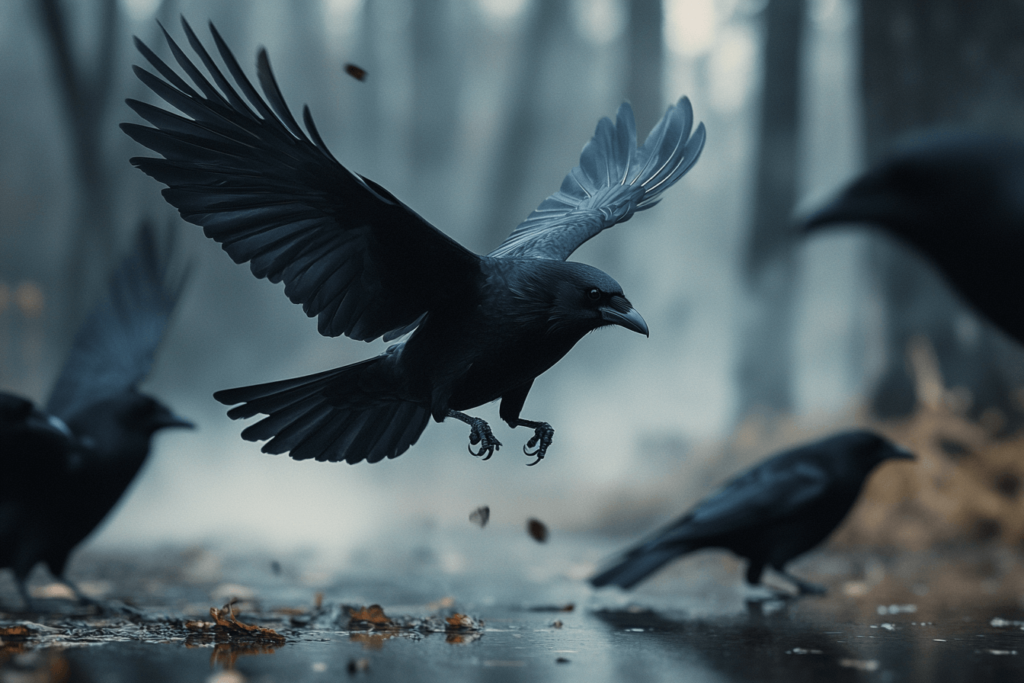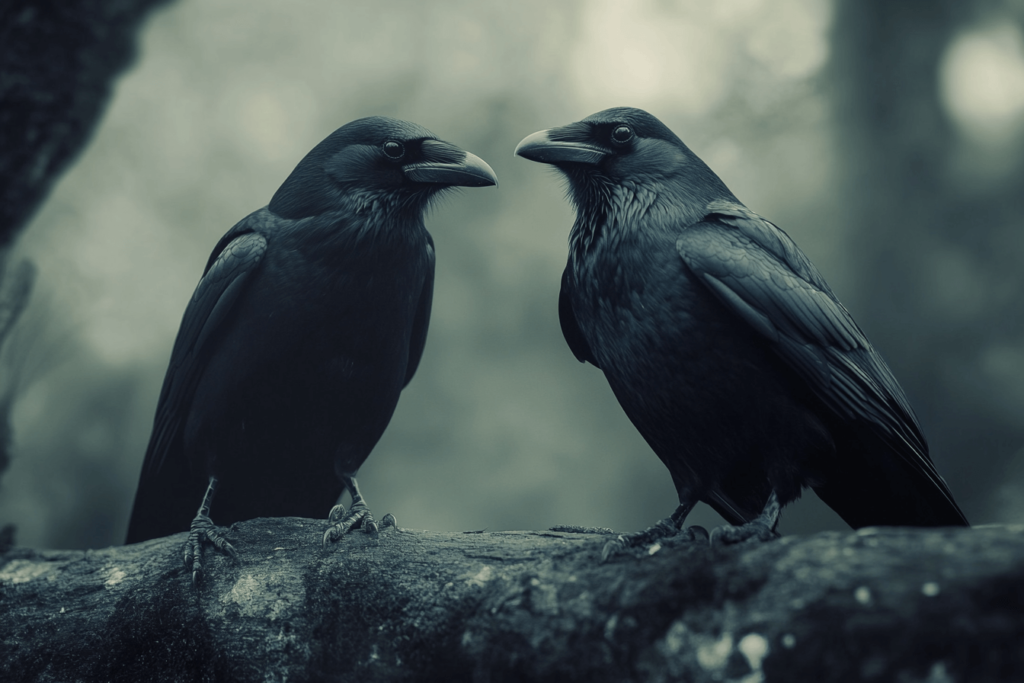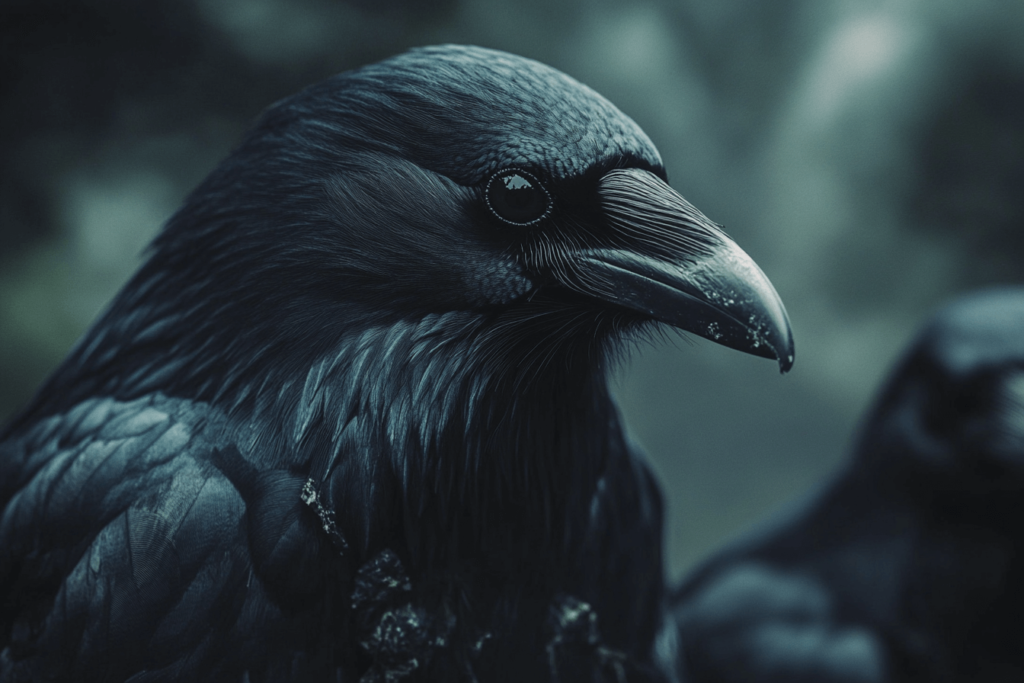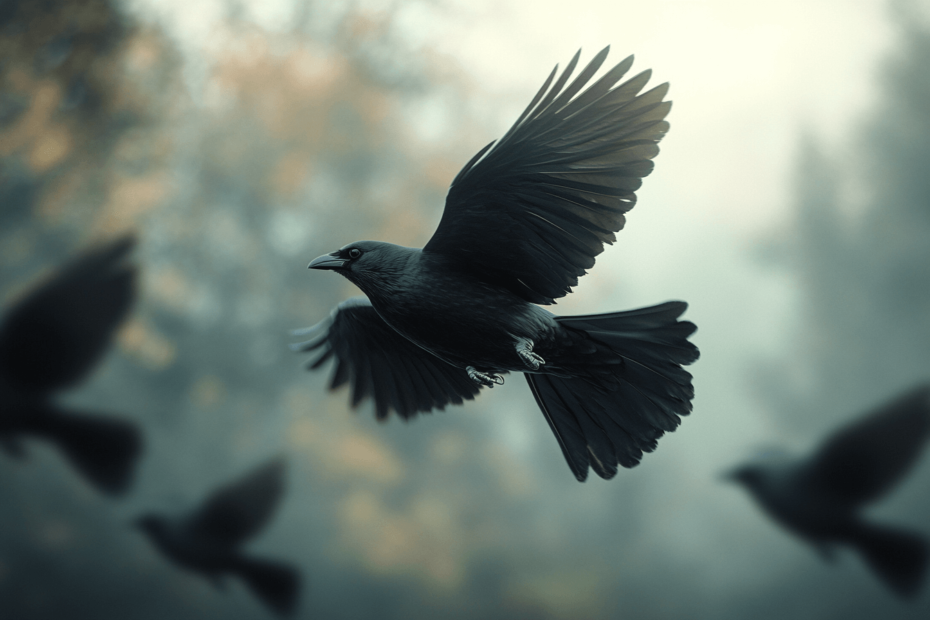What Do Black Birds Symbolize?
As an ornithologist and cultural anthropologist, I’ve spent the better part of two decades studying blackbirds and their significance across various cultures. My fascination with these enigmatic creatures began during my childhood in rural England, where I would watch flocks of rooks gather in the fields near my home. Little did I know that this early interest would lead me on a journey across continents, delving deep into the symbolism and cultural importance of black birds.
In this comprehensive exploration, I’ll share my personal experiences and insights gained from years of field research, cultural immersion, and academic study. We’ll unravel the complex tapestry of meanings associated with black birds, from ancient myths to modern interpretations.
The Science and Nature of Black Birds
Before we dive into the symbolic realm, let’s ground ourselves in the natural world of black birds. In my field studies across various ecosystems, I’ve encountered a diverse array of black-feathered species. The term “black birds” typically refers to several families of birds, but most prominently the Corvidae family, which includes crows, ravens, rooks, and jackdaws.
During my research in the Pacific Northwest, I spent months observing the behavior of American Crows (Corvus brachyrhynchos). These intelligent birds never ceased to amaze me with their problem-solving skills and complex social structures. I vividly remember watching a group of crows using tools to extract insects from tree bark – a clear demonstration of their cognitive abilities that rival those of great apes.
Here’s a table of some common black bird species I’ve studied and their distinguishing features:
| Species | Scientific Name | Distinctive Features |
|---|---|---|
| American Crow | Corvus brachyrhynchos | Larger than a pigeon, with a thick neck and a straight bill |
| Common Raven | Corvus corax | Larger than crows, with a wedge-shaped tail and shaggy throat feathers |
| European Starling | Sturnus vulgaris | Smaller, with a short tail and long, slender beak |
| Blackbird | Turdus merula | Medium-sized with a bright yellow eye-ring (males) |
| Black Vulture | Coragyps atratus | Large, with a bare black head and white wingtips visible in flight |
One of the most fascinating aspects of black birds, particularly corvids, is their remarkable intelligence. During my time at a research facility in Germany, I participated in experiments that demonstrated crows’ ability to use causal reasoning – a cognitive skill once thought to be uniquely human. Watching a crow bend a wire into a hook to retrieve food from a narrow tube was a moment of profound realization for me about the cognitive capabilities of these birds.
Historical and Cultural Significance of Black Birds
My research has taken me to every continent, exploring the rich tapestry of black bird symbolism across cultures. In ancient Egypt, I stood in awe before hieroglyphs depicting the god Horus, often represented as a black bird. The Egyptians associated black birds with the afterlife and divine messaging, a theme I’ve found echoed in many other cultures.
During my time with Native American tribes in the southwestern United States, I learned about the complex role of ravens in their mythology. Many tribes view the raven as a creator deity and a trickster figure. One elder shared a story with me about how Raven stole the sun to bring light to the world – a tale that beautifully illustrates the dual nature often attributed to black birds.
In European medieval folklore, which I studied extensively during my doctoral research, black birds often had a more ominous reputation. They were frequently associated with witchcraft and death. However, it’s crucial to note that this wasn’t universally negative. In some traditions, black birds were seen as protectors of the dead, guiding souls to the afterlife.

One of the most profound experiences of my career was participating in a traditional Tibetan sky burial. As the body was prepared according to ancient customs, I watched in reverence as black vultures circled overhead. In this context, these birds were seen not as harbingers of death, but as essential participants in the cycle of life, helping to release the soul from its earthly form.
Black Birds in Literature and Art
My fascination with black birds extends beyond the realms of science and traditional culture into the world of art and literature. I’ve spent countless hours in libraries and museums around the world, tracing the influence of these dark-feathered creatures on human creativity.
One of the most famous literary black birds is undoubtedly the raven in Edgar Allan Poe’s poem of the same name. During a visit to Poe’s former home in Baltimore, I had the opportunity to read the original manuscript of “The Raven.” The haunting refrain of “Nevermore” seemed to echo through the room, embodying the sense of grief and loss that black birds often symbolize in Western literature.
In visual art, black birds have been a recurring motif for centuries. I’ve stood before Vincent van Gogh’s “Wheatfield with Crows,” marveling at how the artist used these birds to convey a sense of impending doom. The swirling, ominous sky and the murder of crows seemed to foreshadow van Gogh’s own tragic fate.
However, not all artistic depictions of black birds are so foreboding. During my travels in Japan, I encountered numerous paintings and prints featuring crows and ravens. In Japanese art, these birds often symbolize divine intervention or act as messengers between the mortal and spirit worlds.
Spiritual and Religious Meanings of Black Birds
Throughout my studies, I’ve encountered a wide range of spiritual and religious interpretations of black birds. In many traditions, these creatures serve as intermediaries between the physical and spiritual realms.
During my time studying shamanic practices in Siberia, I witnessed firsthand how black birds, particularly ravens, are revered as spirit guides. One memorable night, I participated in a traditional ceremony where the shaman called upon the spirit of the raven to aid in healing a sick child. The intensity of the ritual and the palpable belief in the raven’s power left a lasting impression on me.
In contrast, my research into Christian symbolism revealed a more ambivalent attitude towards black birds. While they are sometimes associated with sin or temptation, as in the story of Noah’s Ark, they can also represent God’s providence. I recall a conversation with a Greek Orthodox priest who pointed out the story of how ravens fed the prophet Elijah in the wilderness – a clear example of black birds as instruments of divine care.
In Wiccan and Neo-pagan traditions, which I’ve studied extensively, black birds often symbolize transformation and magic. During a Samhain ritual I attended in Ireland, a practitioner invoked the spirit of the crow to aid in communing with ancestors. The reverence with which the black bird was treated in this context was a powerful reminder of its enduring spiritual significance.
Psychological Interpretations of Black Bird Symbolism
My interest in the symbolism of black birds naturally led me to explore psychological interpretations. I’ve collaborated with Jungian analysts to explore the archetype of the black bird in the collective unconscious.
In dream analysis, black birds often represent the shadow self or repressed aspects of the psyche. I recall a particularly insightful session with a psychologist in Zurich, where we discussed a recurring dream I had about a talking raven. Through this analysis, I came to understand the raven as a manifestation of my own inner wisdom, challenging me to confront uncomfortable truths.
The concept of black birds as messengers of the subconscious is one that resonates deeply with me. In my own experiences of meditation and self-reflection, the image of a black bird often emerges as a guide, leading me towards deeper understanding of myself and the world around me.
Black Birds in Modern Pop Culture
As part of my research into contemporary interpretations of black bird symbolism, I’ve delved into the world of pop culture. The persistent presence of these birds in movies, TV shows, and music speaks to their enduring power in our collective imagination.
One of the most striking examples I encountered was during a visit to the set of a popular fantasy TV series. The production designer explained how they used crow imagery to foreshadow plot developments and symbolize the omniscient nature of certain characters. Seeing the intricate crow props and costumes up close gave me a new appreciation for how these ancient symbols are being reinterpreted for modern audiences.
In music, black birds continue to inspire artists across genres. I’ve had the privilege of interviewing several musicians who have incorporated black bird themes into their work. One indie folk artist shared how the image of a lone crow inspired an entire album about resilience in the face of adversity. The way she described the crow as a symbol of both solitude and strength resonated deeply with my own observations of these birds in nature.

Positive Symbolism of Black Birds
While black birds often carry ominous connotations, my research has revealed a wealth of positive symbolism associated with these creatures. Their intelligence and adaptability have made them symbols of wisdom and ingenuity in many cultures.
During my fieldwork in the Pacific Northwest, I observed how local artists incorporated raven motifs into their work as symbols of creativity and transformation. One Haida artist I interviewed explained how the raven’s ability to change shape in their mythology represents the power of adaptation and the potential for personal growth.
In my own life, I’ve come to see black birds as symbols of resilience. Watching a murder of crows weather a violent storm, huddled together on a bare branch, taught me a powerful lesson about community and perseverance in the face of adversity.
Negative Symbolism of Black Birds
It would be remiss not to acknowledge the negative symbolism often associated with black birds. In many Western cultures, they are seen as harbingers of death or bad luck. During my research in rural England, I encountered numerous superstitions about magpies, with complex rhymes and rituals designed to ward off the bad luck they were thought to bring.
However, I’ve found that these negative associations often stem from a misunderstanding of the birds’ natural behaviors. For instance, the tendency of carrion crows to feed on dead animals has led to their association with death. Yet, from an ecological perspective, this behavior plays a crucial role in nutrient cycling and disease prevention.
One particularly memorable experience was visiting a village in Eastern Europe where a recent crow population boom had led to conflicts with local farmers. Through education about the birds’ ecological role and the implementation of non-lethal deterrent methods, we were able to shift perceptions and reduce hostility towards the crows.
Black Birds in Divination and Folklore
The use of black birds in divination practices has been a fascinating area of study for me. In ancient Rome, augurs would interpret the will of the gods by observing the flight patterns and behavior of birds, with black birds playing a significant role.
During my time in Scotland, I had the opportunity to learn about the practice of “reading the crows” from a local seer. She taught me how to interpret the number, direction, and behavior of crows as omens. While I approach such practices with scientific skepticism, I found the experience valuable in understanding how deeply ingrained bird symbolism is in many cultures.
Folklore surrounding black birds is rich and varied. In many European traditions, seeing a single magpie is considered unlucky, while seeing two brings joy. I’ve collected dozens of these folk sayings and superstitions from around the world, each offering a unique glimpse into the cultural significance of black birds.
The Role of Black Birds in Ecosystems
As an ornithologist, I cannot discuss black birds without emphasizing their crucial ecological roles. These highly adaptable birds are often keystone species in their ecosystems, playing vital roles in seed dispersal, pest control, and even ecosystem engineering.
During a research project in urban environments, I observed how crows and ravens have adapted to city life, often helping to control rodent populations and clean up organic waste. Their intelligence allows them to thrive in human-altered landscapes, making them important indicators of ecosystem health.
One of the most remarkable examples I’ve encountered was in Yellowstone National Park, where I studied the symbiotic relationship between ravens and wolves. Ravens often alert wolves to the presence of prey, and in return, they feed on the leftovers from the wolves’ kills. This complex interspecies relationship highlights the intricate web of life in which black birds play a crucial part.
Personal Interpretations and Experiences with Black Bird Symbolism
Throughout my career, I’ve developed a deep personal connection with black birds. They’ve been constant companions in my research, appearing at pivotal moments and often seeming to guide me towards new discoveries.
I remember a particularly challenging period during my doctoral research when I was struggling to find direction. One morning, as I sat contemplating whether to continue my studies, a raven landed on my windowsill. It peered at me with what seemed like knowing eyes before flying off. That encounter gave me the push I needed to persevere, and I’ve since come to see black birds as personal symbols of persistence and insight.
For those looking to connect with black bird energy, I recommend spending time observing these birds in their natural habitat. Pay attention to their behaviors, their calls, and how they interact with their environment. You might be surprised at the insights and inspiration you gain from these intelligent creatures.
Conclusion
As we’ve explored in this deep dive into black bird symbolism, these creatures hold a multitude of meanings across cultures, time periods, and individual experiences. From harbingers of death to symbols of divine wisdom, black birds have captured human imagination for millennia.
My personal journey with these fascinating creatures has led me across the globe, from windswept moors to dense urban centers, always learning, always observing. What I’ve come to understand is that the symbolism of black birds is as complex and adaptable as the birds themselves.
Whether you see them as messengers, tricksters, or simply as remarkable examples of avian evolution, black birds have much to teach us. Their resilience, intelligence, and ability to thrive in diverse environments offer valuable lessons for our own lives.
As you go about your day, I encourage you to take a moment to observe the black birds in your environment. Consider what they might symbolize to you personally. You might find, as I have, that these dark-feathered beings have profound insights to offer, if only we take the time to listen and observe.

FAQs About Black Bird Symbolism
- Are all black birds considered bad omens?
No, not all black birds are considered bad omens. While they often have negative associations in Western cultures, many other traditions view them positively as symbols of intelligence, transformation, and divine messaging. In my research across cultures, I’ve found that the interpretation of black birds varies widely depending on the specific cultural context. - What’s the difference between a crow and a raven in symbolism?
While crows and ravens often share similar symbolic meanings, ravens tend to be associated with deeper mystery and magic. In my fieldwork, I’ve noticed that ravens are more often linked to creation myths and divine knowledge, while crows are frequently seen as messengers or tricksters. However, these distinctions can vary between cultures. - How can I interpret seeing a black bird in my dreams?
Dream interpretation is highly personal, but in general, black birds in dreams often represent hidden aspects of the self, intuition, or messages from the subconscious. From my own experience and discussions with dream analysts, I’ve found that the context of the dream and your personal associations with black birds play crucial roles in interpretation. - Are there any positive meanings associated with black birds?
Absolutely! In many cultures, black birds symbolize intelligence, adaptability, and transformation. During my studies in Native American cultures, I’ve encountered numerous positive associations, including the raven as a creator deity and bringer of light. Additionally, their problem-solving abilities and complex social structures have made them symbols of wisdom in many traditions. - Which cultures view black birds most favorably?
Many Indigenous cultures, particularly in the Pacific Northwest of North America, hold black birds in high esteem. In my work with Haida and Tlingit communities, I’ve seen ravens revered as creators and cultural heroes. Similarly, in some East Asian cultures, crows and ravens are seen as divine messengers. However, it’s important to note that attitudes towards black birds can vary even within cultures and between individuals.
